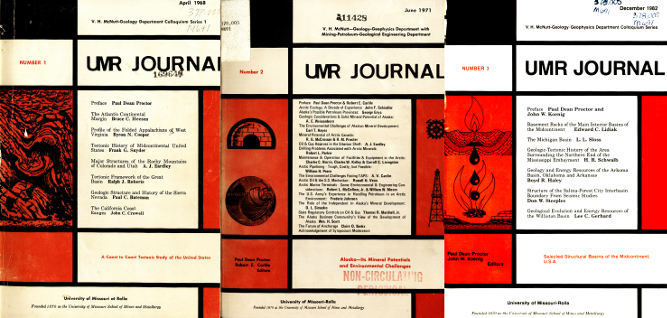UMR Journal -- V. H. McNutt Colloquium Series

Publication Date
01 Jun 1971
Abstract
Canada is on the threshold of a major new phase in the development of its Arctic resources. The Prudhoe Bay discovery triggered a boom in northern petroleum exploration that is just getting into high gear this year. Mining activity also has greatly expanded in the last few years with some 73 active exploration programs underway and several large new mines just coming into production. The size of these ventures is indicated by ore reserves of two lead-zinc mines to the value of 900 million dollars at Pine Point in southern Northwest Territories, and 1.2 billion dollars at the Anvil property in the southern Yukon Territory. Other properties with very large reserves are currently under development.
Approximately 465,000 sq. miles of the 1.5 million square miles of Canada north of the 60th parallel are underlain by sedimentary rocks. A volumetric estimate of petroleum potential on the basis of rather scanty evidence is made at 54 billion barrels. With the current activity in the area it should be possible to improve this estimate considerably in the next 2 or 3 years. The two most promising areas are the Arctic Coastal Plains containing large volumes of young sedimentary rock and large structures, and the Mesozoic Sverdrup Basin also with many potential hydrocarbon traps. The Interior Plains of the mainland and the Arctic lowlands, as well as the fold belts of the Franklinian miogeosyncline indicate lesser potential.
Document Version
Final Version
File Type
text
Language(s)
English
Rights
© 1971 University of Missouri--Rolla, All rights reserved.
First Page
31
Last Page
38
Recommended Citation
McCrossan, R. G. and Procter, R. M.
(1971)
"Mineral Potential of Arctic Canada,"
UMR Journal -- V. H. McNutt Colloquium Series: Vol. 2, Article 7.
Available at:
https://scholarsmine.mst.edu/umr-journal/vol2/iss1/7
Included in
Geology Commons, Geophysics and Seismology Commons, Mining Engineering Commons, Petroleum Engineering Commons


